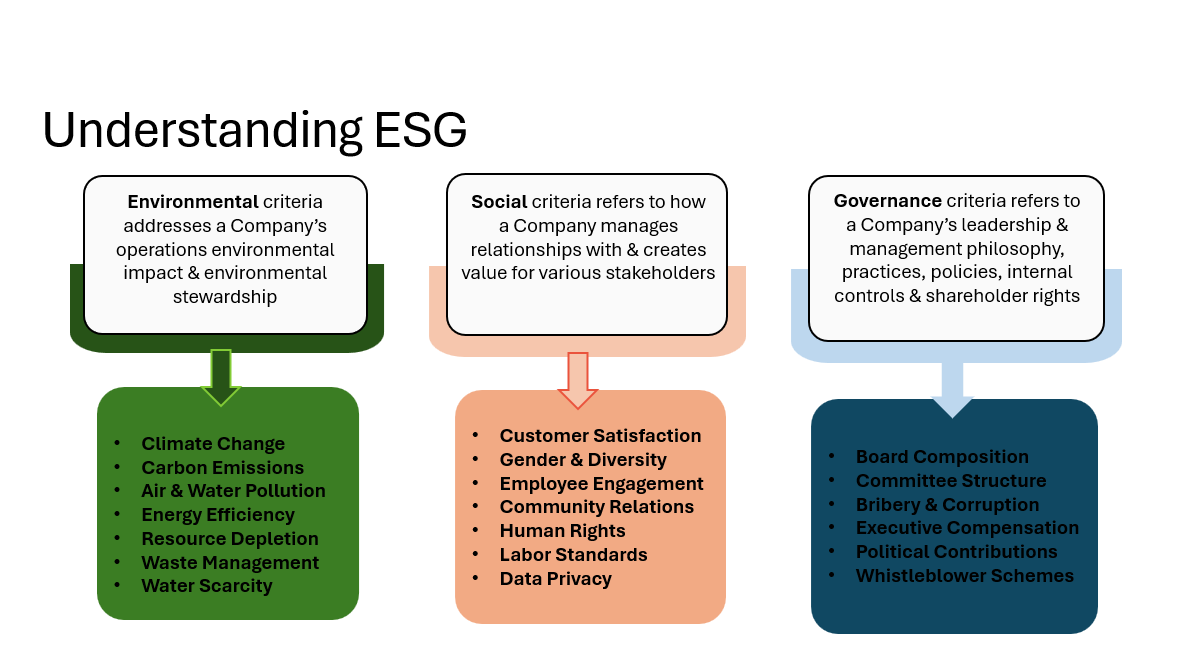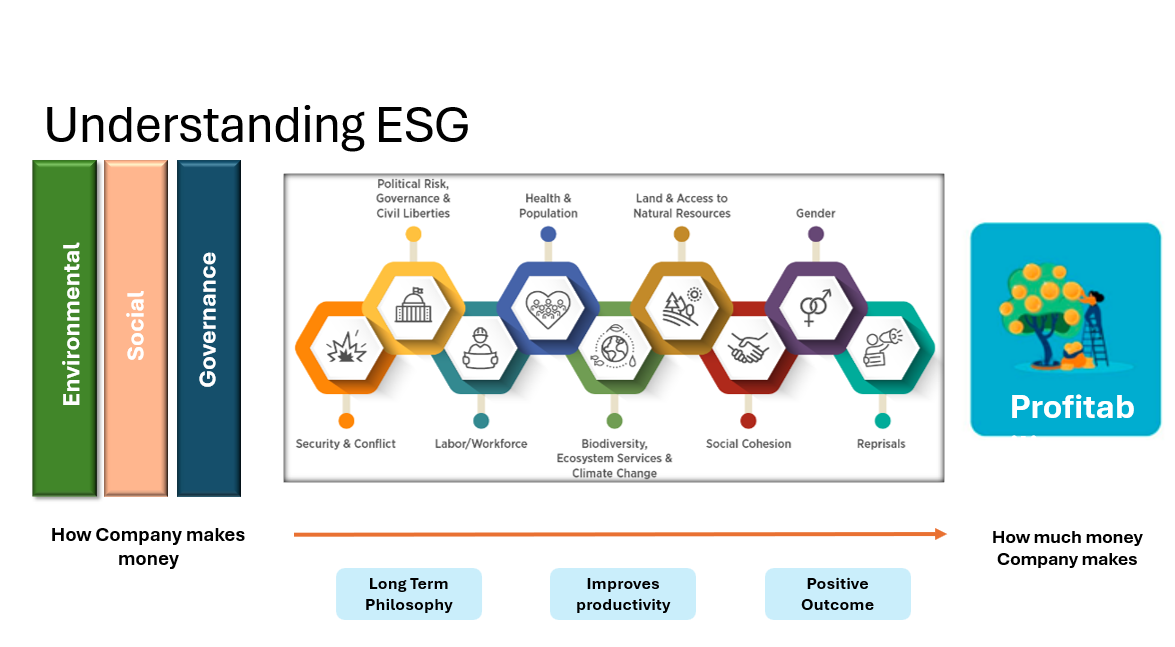Chow Energy Public Company Limited
Sustainability Management


Social

Governance
ESG stands for Environment, Social, and Governance. It's a framework used to evaluate a company's performance in three key areas:
Environmental: This aspect focuses on a company's impact on the environment, including factors like carbon emissions, resource usage, and waste management.
Social: Social factors assess how a company manages its relationships with people, including employees, communities, customers, and suppliers. This includes issues like labor practices, diversity and inclusion, and community engagement.
Governance: Governance refers to the systems and processes by which a company is directed and controlled. It involves issues such as board composition, executive compensation, transparency, ethics, and risk management.
ESG is relevant to sustainability because it provides a structured approach for companies to consider and manage their environmental and social impacts, as well as governance practices. By integrating ESG considerations into their operations and decision-making processes, companies can enhance their sustainability performance, mitigate risks, and create long-term value for stakeholders. ESG factors are often used as indicators of a company's sustainability performance, as companies that effectively manage ESG issues are more likely to be sustainable in the long term.
Businesses that place emphasis on Environment, Social, and Governance (ESG) factors in their operations signal a significant pivot towards sustainability, ethical accountability, and transparency. These organizations weave considerations such as reducing carbon emissions, promoting employee well-being, fostering diversity, and upholding ethical governance into their fundamental strategies. Conversely, enterprises that neglect ESG often prioritize immediate financial gains over sustainable practices, disregarding their impact on the environment, society, and governance frameworks.
Adopting ESG principles not only aligns companies with societal expectations but also yields concrete advantages. These include bolstered reputation and brand value, improved access to funding, cost efficiencies from streamlined operations, attraction and retention of top talent, diminished regulatory risks, and the stimulation of innovation for long-lasting value creation. Ultimately, integrating ESG principles not only ensures ethical conduct but also positions companies for enduring success and resilience in a dynamic global landscape.




